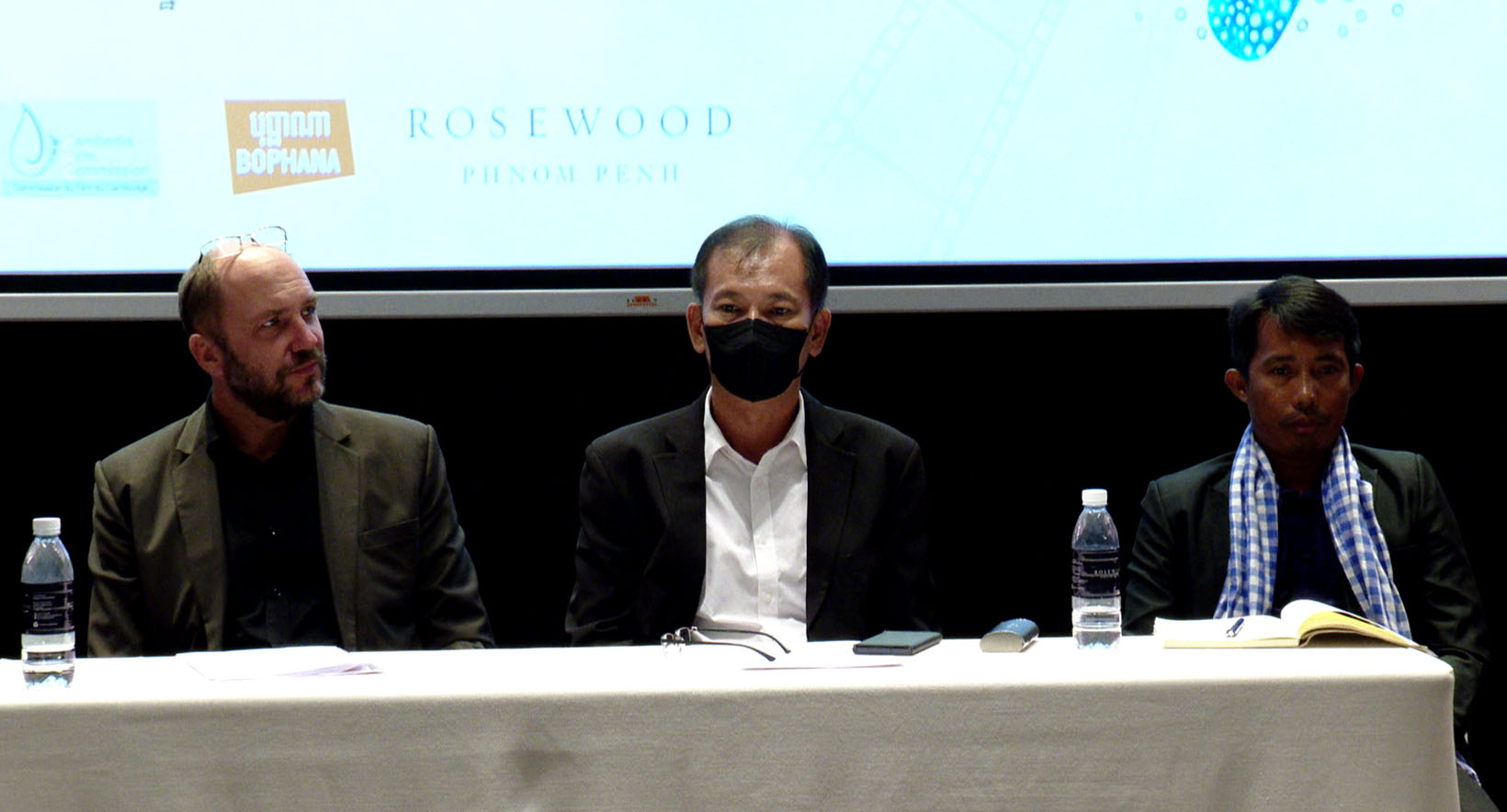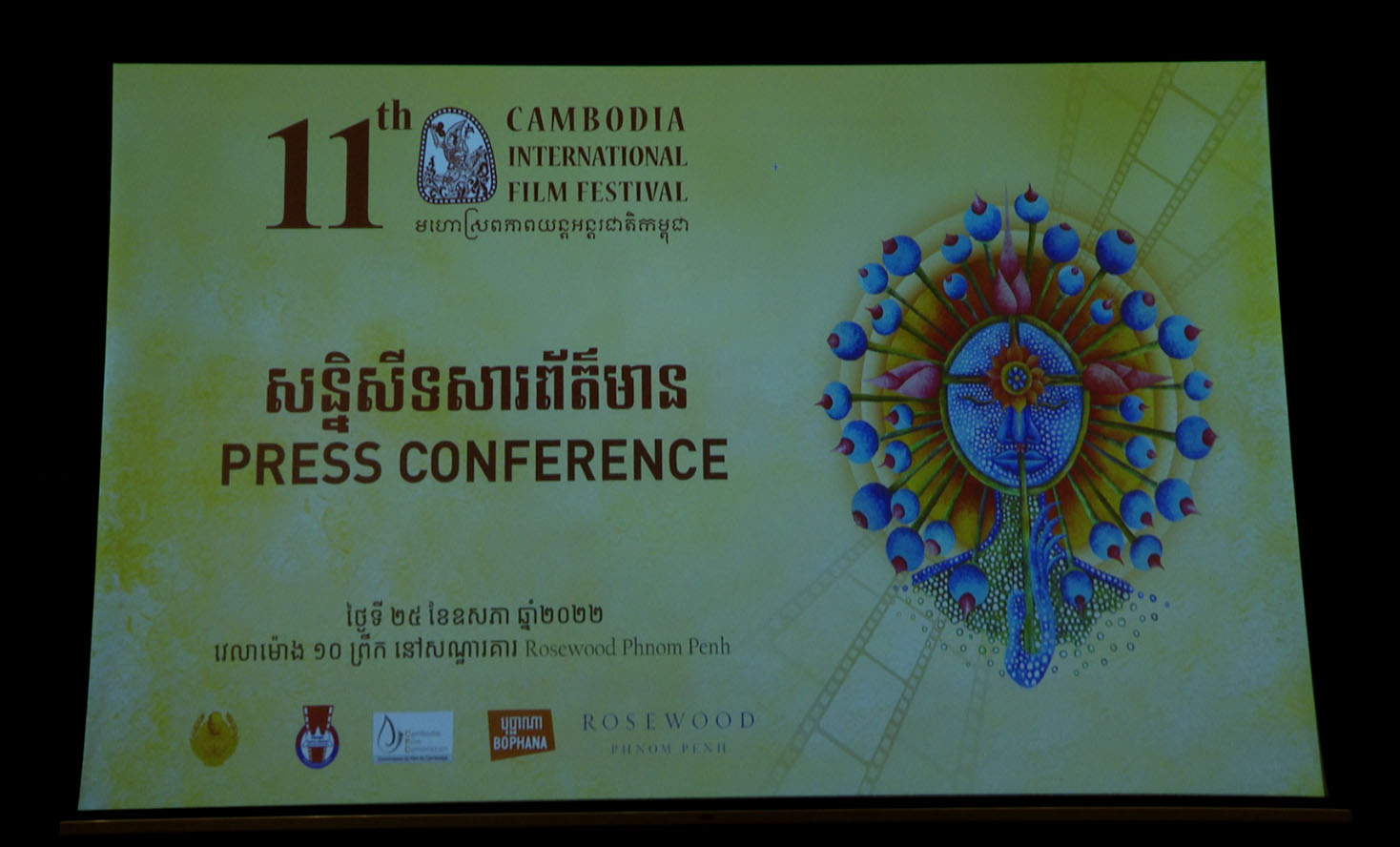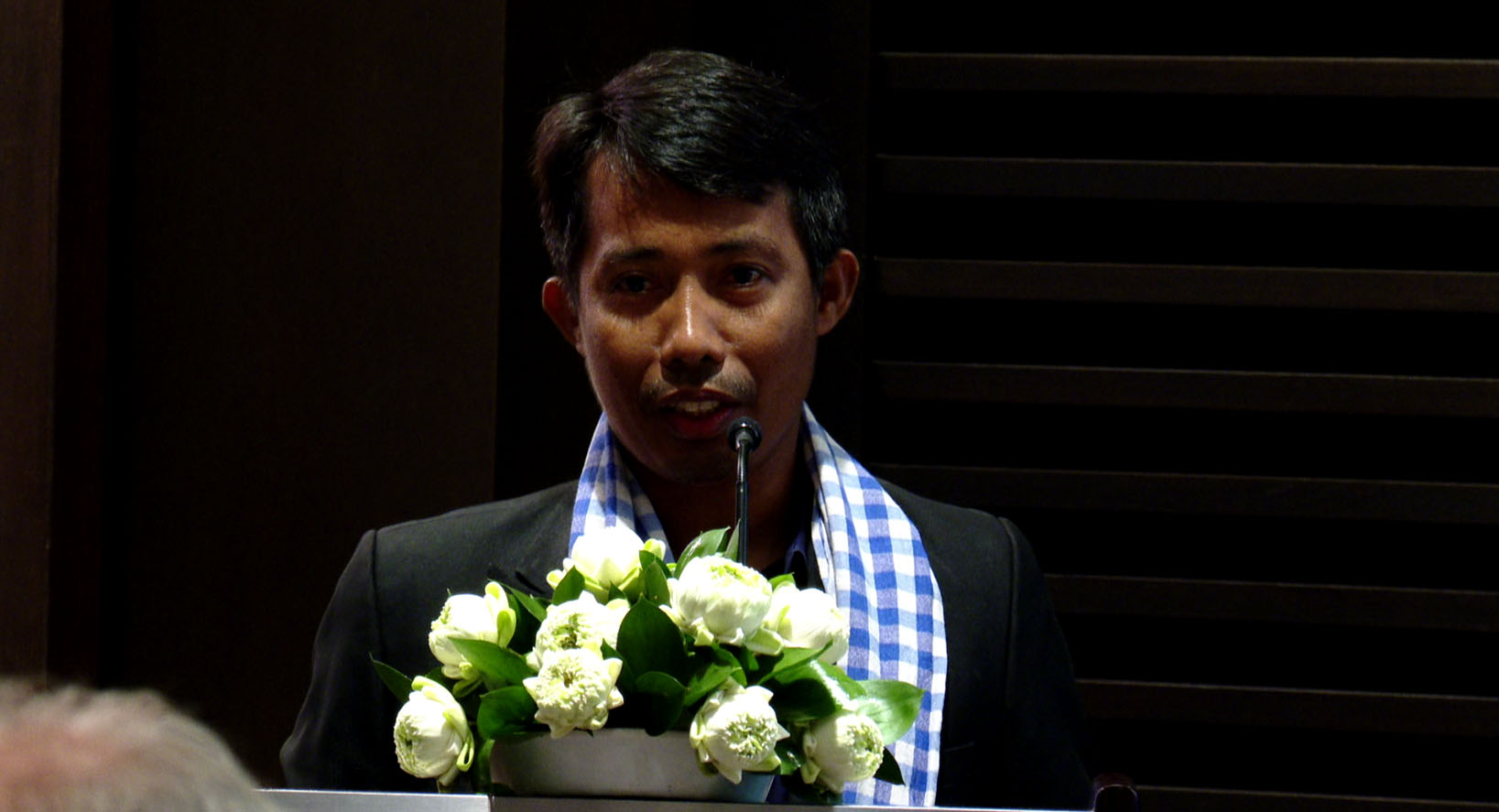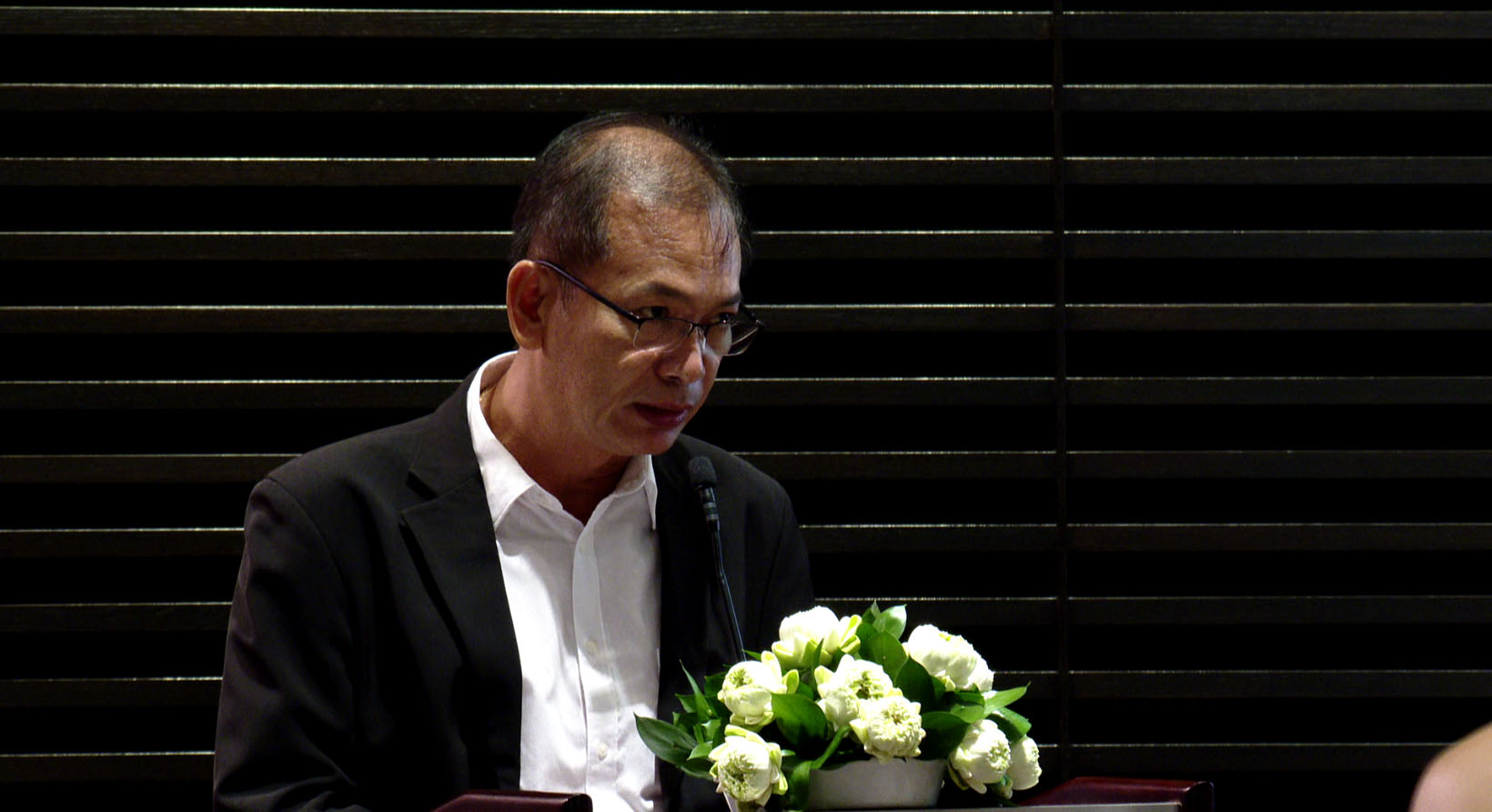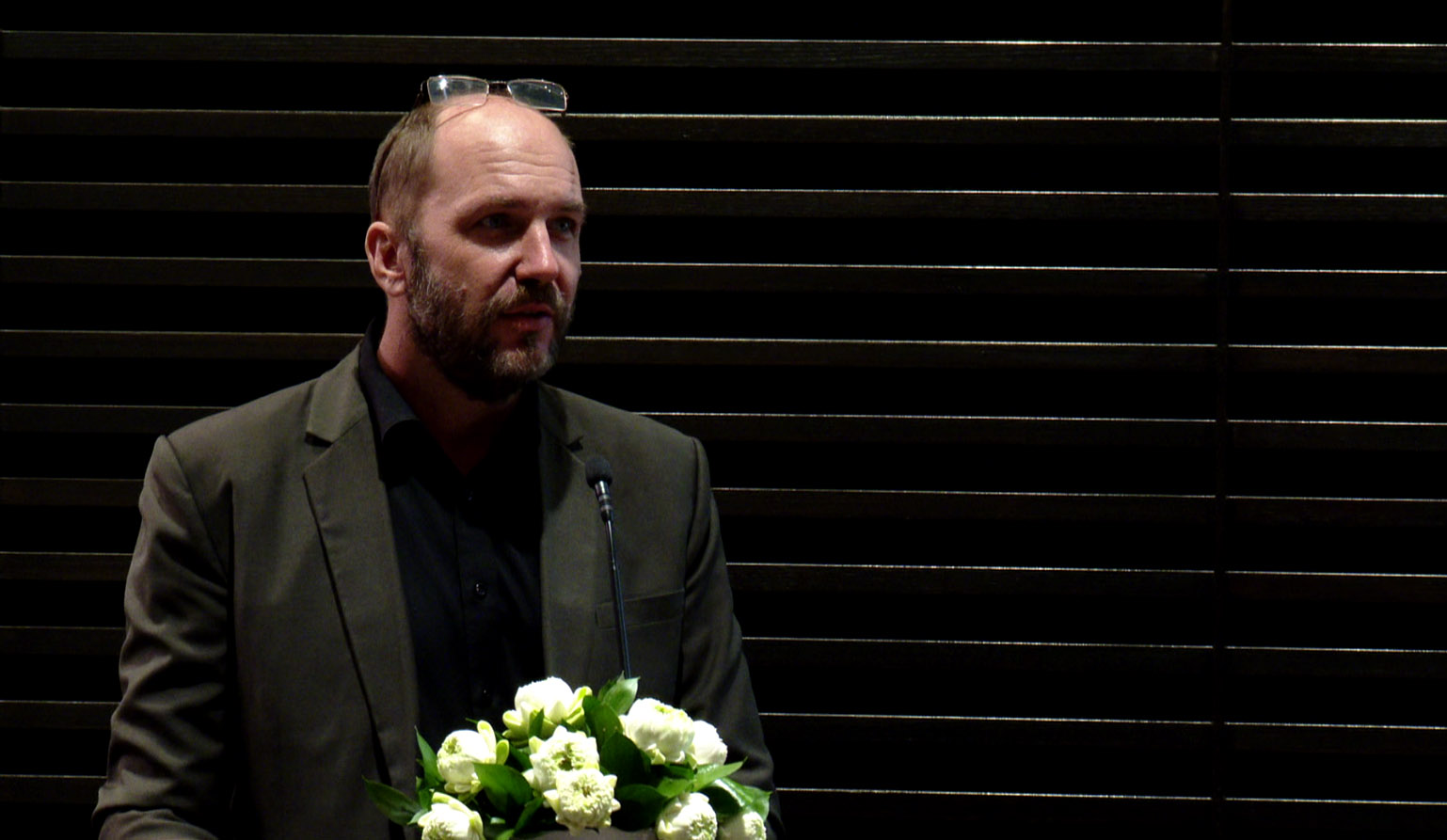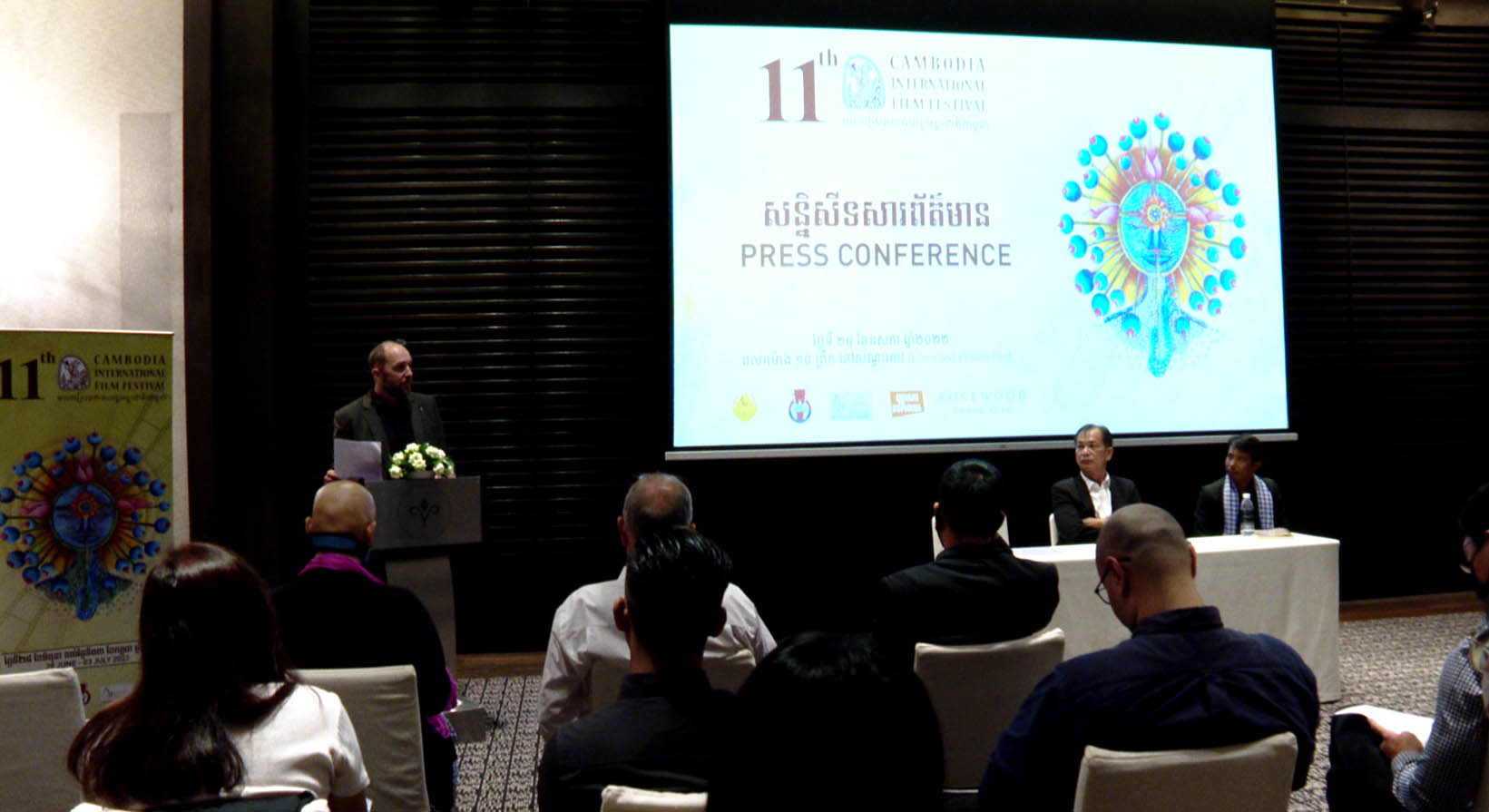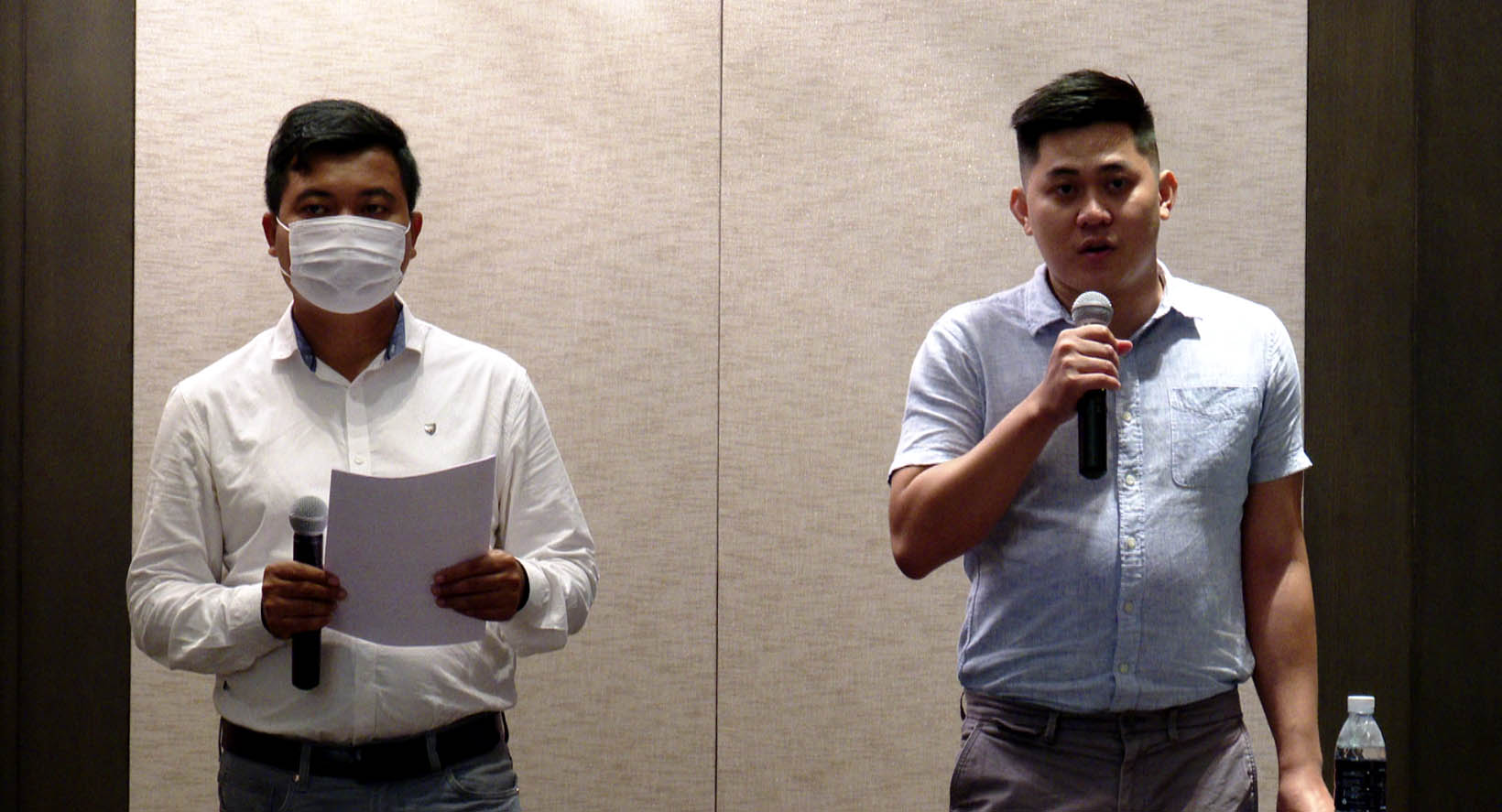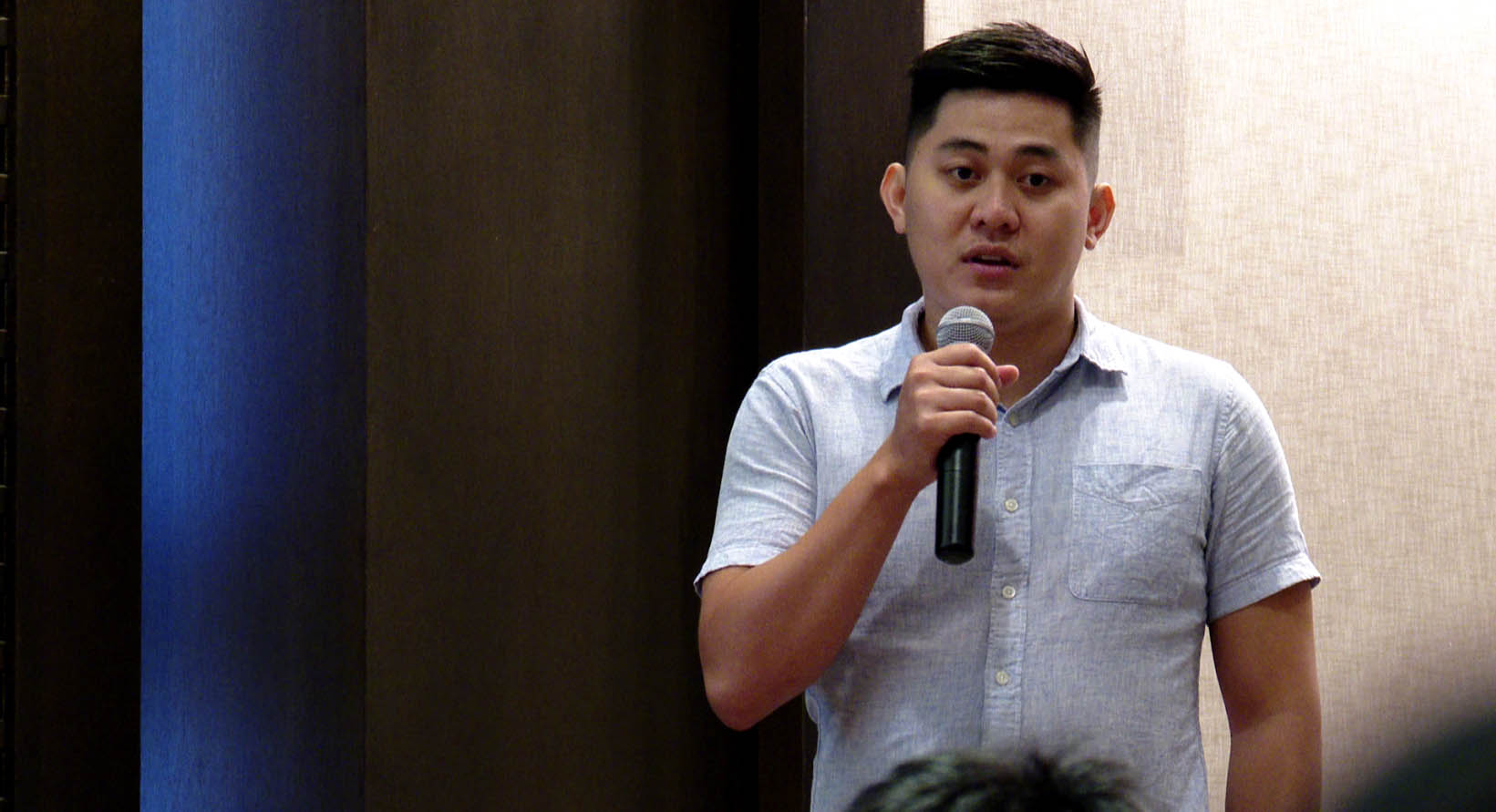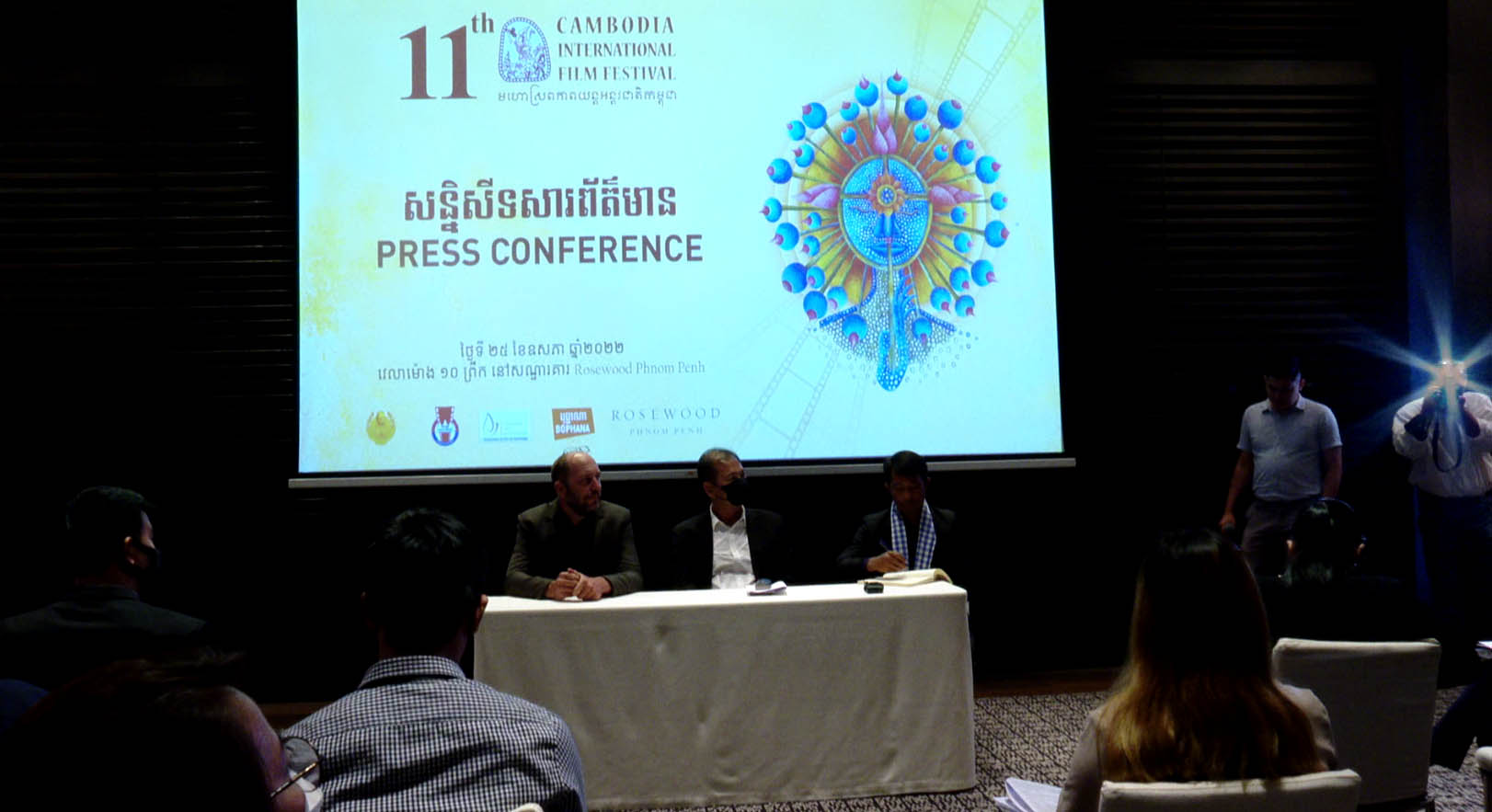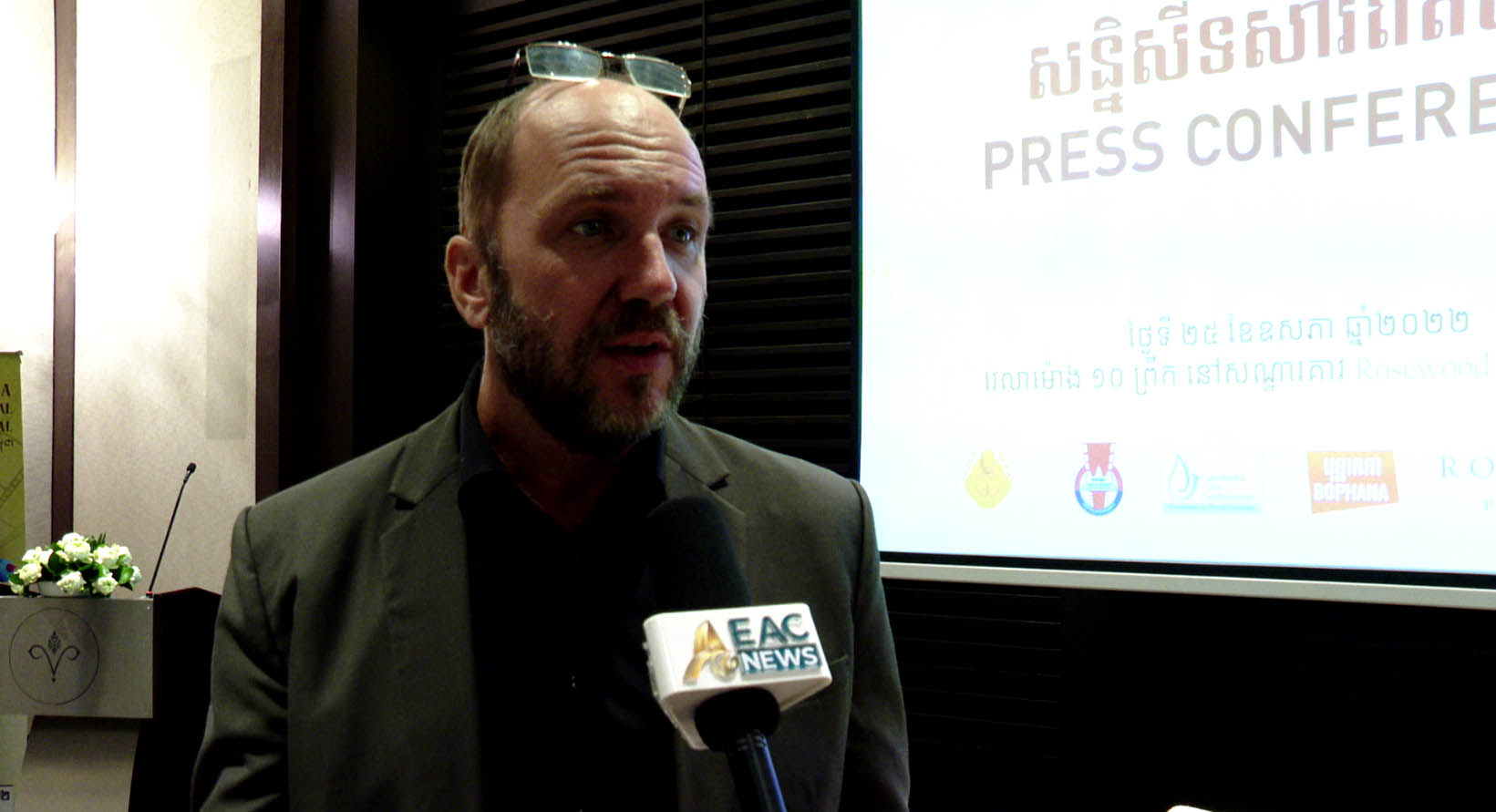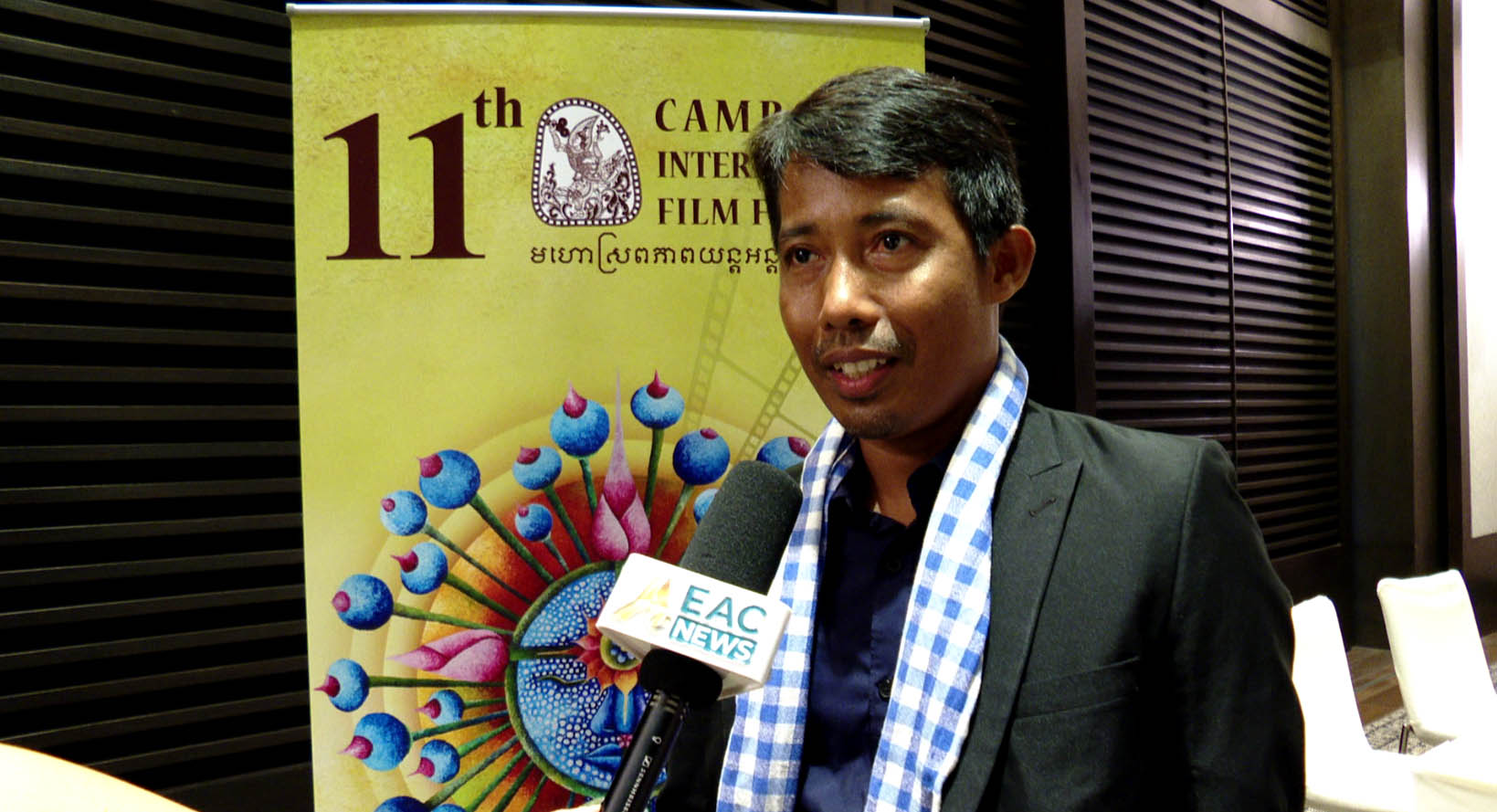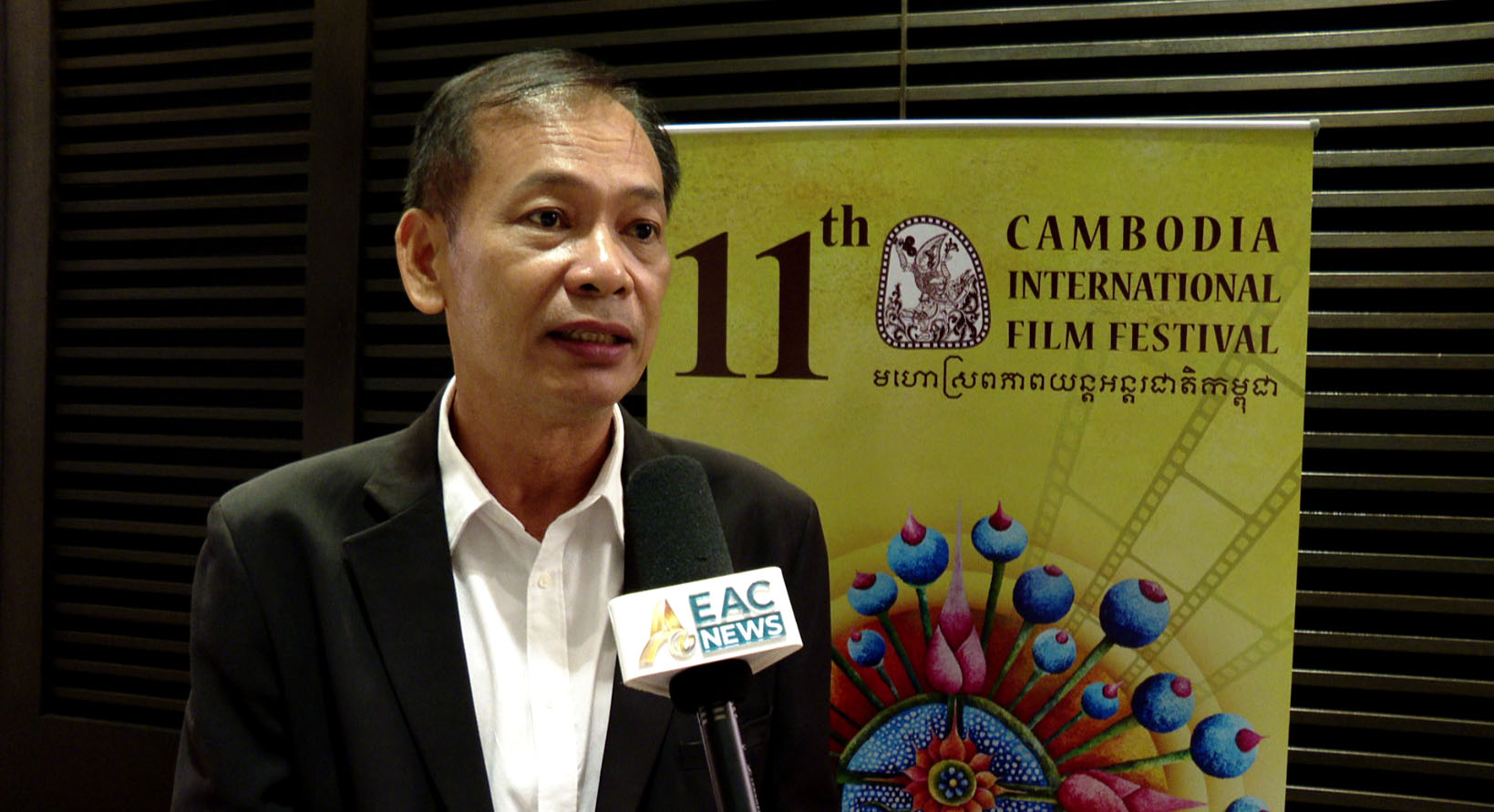PHNOM PENH: Following an abrupt end midway through the festival in 2020, and a two-year hiatus due to the Covid-19 pandemic, the Cambodia International Film Festival (CIFF) is finally set to return for its 11th edition from 28 June to 3 July, 2022.
The festival organizers held a press conference on Wednesday, 25 May, at Rosewood Hotel, to announce the return of CIFF in June. The official poster for the 11th edition of the festival was also unveiled, based on an original painting titled “JUST BORN” by Khchao Touch, a female artist based in Battambang.
CIFF has been jointly organized by the Bophana Audiovisual Resource Center (ARPAA) and the Cambodia Film Commission (CFC) since 2010, with the support of the Ministry of Culture and Fine Arts, the Ministry of Information, the Ministry of Tourism, the Ministry of Education, among others.
Speaking at the press conference, the Director of CIFF, Cedric Eloy, remarked on the history of the festival, saying that it was first organized “12 years ago, at a time when the film industry was just starting with the Bophana Center as the only film organization, and the creation of the Cambodia Film Commission.” He added that they collectively believe CIFF “was an essential tool to witness the progress of the industry and develop education through film,” which then also helped lead to the opening of modern theaters, inspired hundreds of young Cambodians to be involved in films and had a direct impact on attracting foreign films to Cambodia.
When asked about what impact fostering a film culture through this festival has had on society, the CIFF Director said that he has seen great positive change in the way films are now created, and said he thinks the festival has helped to open people’s minds.
“Of course, when we saw the first short films of ten years ago, they were mostly a style of advertising or karaoke, and now we can see that the way of making films is changing,” said Eloy. “We have new, more creative ways of filming, and I think it’s something that needs to be shown and supported to really bring [out] this new generation [of Cambodians] that have discovered film at the festival, but also in other events, because now filmmakers are also able to travel and have a lot of opportunities to go to other festivals [abroad], so I think it’s opened their minds.”
He continued, “One part of learning to make films is to see films, to watch a lot of different films, so, CIFF has really been built to do that. Just by staying in Phnom Penh for a week you can see films from all over the world, with different formats, different topics, different styles, you can go for your interests. But it’s really the strength of being able to see different perspectives on how to make films, not just the one way that it’s always been done, and that you [always have to follow]. I think the strength of cinema is that you can always be creative, just like music.”
The Executive Director of the Bophana Center, Chea Sopheap, highlighted how “cinema culture has been rooted in Cambodian society since the 1950s and became a celebrated cultural activity in the 1960s and early 1970s,” however, the Khmer Rouge effectively disrupted and destroyed cinema in Cambodia shortly after. With that said, he positively noted that young people in Cambodia today have once again discovered the art of filmmaking and like to express themselves through motion pictures, providing a promising outlook for the local industry.
“Films, I think, play a very important role, in supporting young people to express themselves,” said the Executive Director of Bophana Center. “Many of them have very convenient tools, including small cameras, digital cameras, and even their smartphones. It’s very convenient. What they need right now is only a platform to teach them how to [make films]. This platform allows them to express something very nicely, not only artistic expression, but also expression of social issues. This will help raise public awareness about what is happening.”
Speaking further on the benefit of cinema to broader Cambodian culture, economy and society, he said, “Films, also help promote local culture to the international stage. You can see many films from Cambodia travel around the world, and this will help attract international audiences to at least pay a visit to Cambodia, so this will help boost the tourism industry as well. And, also, film is a very good format of documentation. It’s a visual format that we can see, we can hear, and we can relate our sense to those kinds of activities.”
Following huge and ongoing efforts made by the Royal Government of Cambodia to control the Covid-19 pandemic since 2020, cinemas around Cambodia were finally allowed to reopen again in March 2022, however only at 50 percent capacity and with strict standard operating procedures (SOPs) in place. The great success of the national vaccination campaign only continued and, finally, in early May 2022, the Ministry of Culture and Fine Arts requested for cinemas to be able to once again operate at 100 percent capacity, a request which was quickly approved by the Royal Government. This has allowed other film related activities, like festivals, to also restart.
Remarking on the disruptions caused by Covid-19, CIFF Director Cedric Eloy stated that the last two years have been hard for the entire creative sector, for artists and cultural organizations, however, he believes that the 11th edition of this festival will play a vital role in kick-starting the engine of the Cambodian cinema industry once again.
The Director of the CFC, Cheap Sovichea, also commented on how the lifting of Covid-19 restrictions, following a successful national government effort, will allow the commission to resume its work of facilitating the arrival of foreign filmmakers who wish to produce films in Cambodia, at a similar capacity to before the pandemic hit.
“I want to thank the Royal Government of Cambodia for holding the vaccination campaign against Covid-19 for Cambodians nationwide,” said the CFC Director. “After the Government got Covid-19 under control, they were able to reopen the country and economy, until we became able to receive tourists and other international guests with vaccination cards without quarantine. This is an opportunity for foreign filmmakers to come back to our country, to work in our country. In the past two years of the pandemic, for almost two years we have had filmmakers say they wanted to come to Cambodia, but they could not leave their own countries, and we were not ready to receive them [either].”
Speaking further on how Covid-19 restrictions also made it difficult for filmmakers to proceed with their productions like planned, he said, “Each filmmaker that wants to come and work in Cambodia does not want to quarantine. They don’t have the budget for quarantine. For example, if they have 10 crew members who need to quarantine for 14 days, that’s a lot of expenses. But now that the country is reopened, it is a good opportunity for CFC to continue facilitating foreign filmmakers and hosting film workshops. It is a great opportunity for us to work as we did before Covid-19.”
Remarking on the future of the Cambodian film industry, Bophana Center Executive Director, Chea Sopheap, said external factors, like the Covid-19 pandemic, play a big role in impacting the industry, but nevertheless, he believes that Cambodian cinema will continue to thrive based on the number of new rising filmmakers, and the ever-growing interest in the medium from young people.
“As you can see that the Cambodian film industry started to grow in the last decade, but within two years of the pandemic, we faced big problems,” said Chea Sopheap. “So, we never know what is happening. But, if the situation becomes good, like if we don’t have any disruptions, like Covid-19 or other issues, I am sure that cinema in Cambodia is [coming] back again. You can see the number of rising filmmakers in Cambodia, one of whom is Neang Kavich. Sok Chandaro, Polen, and many others. And we also see that young Cambodian people really like this medium, motion pictures, so much. They go to cinemas, they go to commercial cinemas and also arthouse cinema. And I feel that we are in a good way moving forward within this industry.”
In his closing remarks, CIFF Director, Cedric Eloy, stated that making the festival happen has always been a challenging process that would not have been possible without the support of their teams, partners, friends and organizations. He further thanked the support of UNESCO, the Australian Embassy and the continuous encouragement of various ministries, especially the Ministry of Culture and Fine Arts, Ministry of Tourism, Ministry of Information and Ministry of Education.
He noted that CIFF continues to grow more popular every year, but the festival still needs more support to continue growing, thus he invites all companies, institutions, foundations and others who are interested, to join this success story of bringing CIFF back in 2022.
“We are very lucky because of course the government is very supportive of the arts, and there is a very strong encouragement to have these platforms for filmmakers and for educating the youth. It’s very good to have this kind of support and we are lucky for that in Cambodia,” said Eloy.
Speaking more on what he hopes to see in terms of future support for CIFF, he said, "And of course, from other institutions, we have ideas of creating maybe a film competition, maybe a film fund, a fund to help more local productions, to develop and produce more quality films. Financing cultural events, cultural products, is always challenging, but we hope to put together a strong community of private and public sector [actors], to be able to put together more and more projects that are dedicated to the industry.”
The Cambodia International Film Festival (CIFF) is Cambodia’s largest international film and cultural event. Initiated in 2010, it acts as a catalyst for the film sector in Cambodia, and gathers more than 20,000 participants each year. Additionally, the festival acts as a bridge between Cambodia and the world through the universal language of film and culture, promotes the circulation of films within the region and promotes Cambodian productions.
The 11th Edition of CIFF will be celebrated in more than 10 different venues around Phnom Penh this year, including the Chaktomuk Conference Hall, Major Cineplex, Legend Cinema, Rosewood Hotel, the Bophana Center, French Institute, Java Creative and Factory Phnom Penh.
The full program for this year’s festival will be announced later in June.
